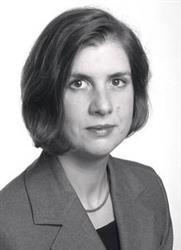ProjektPrager Moderne(n) – Überschneidungen und Abgrenzungen in Raum und Zeit. Der literarische Diskurs der Prager…
Grunddaten
Akronym:
Prager Moderne(n)
Titel:
Überschneidungen und Abgrenzungen in Raum und Zeit. Der literarische Diskurs der Prager Moderne(n)
Laufzeit:
15.10.2015 bis 14.10.2018
Abstract / Kurz- beschreibung:
In dem Projekt werden die deutsch- und tschechischsprachige Literatur und Kultur Prags um die Jahrhundertwende und zu Beginn des 20. Jahrhunderts vergleichend im Hinblick auf Austausch- und Abgrenzungsprozesse betrachtet. Den Bezugsrahmen bildet dabei materialiter die Stadt Prag, die aber in den verschiedenen kollektiven Identitätsdiskursen unterschiedliche symbolische Zuschreibungen erhält. Hinzu kommt die jeweilige Situierung mit Blick auf die die Zeit prägenden zivilisatorischen Modernisierungsprozesse, wobei die Reaktionen der Zeitgenossen sich in einem breiten Spektrum bewegen: von Affirmation über kritische Reflexion, die häufig in eine krisenhafte Zeitdiagnose mündet, bis hin zu Ablehnung. Äußerungen des literarischen Diskurses im weitesten Sinne, also literarische, literatur- und kulturkritische Texte der Zeit, setzen – so die Grundannahme – auf explizite oder implizite Weise die eigene (Prager, deutsch-Prager, tschechisch-Prager oder in einem weiteren Sinne auch böhmische) Position zum Phänomen der Moderne in Beziehung. Der im Projekttitel in Klammern gesetzte Plural der Prager Modernen markiert insofern die Frage, ob sich von einer spezifisch Pragerischen Ausprägung der Moderne sprechen lässt oder ob dort heterogene, nicht unbedingt jedoch entlang der nationalen Zugehörigkeit zu differenzierende Moderne-Auffassungen nebeneinander existierten.
Die beiden Teil-Projekte widmen sich jeweils schwerpunktmäßig den Grundkategorien Raum bzw. Zeit. Ein Monographieprojekt (Dissertation Ulrike Mascher) untersucht deutsch- und tschechischsprachige Prosatexte der Moderne auf ihre jeweiligen raumsemantischen Entwürfe hin und analysiert, wie die Stadt Prag bzw. die Stadt-Imago Prags in ihnen modelliert und zu individuellen oder kollektiven Identitätsentwürfen ins Verhältnis gesetzt wird. Es geht also zunächst um eine Rekonstruktion der prägenden zeitgenössischen Identitätsdiskurse in ihrer Anbindung an konkrete Orte im Stadtbild (an Gebäude, Denkmäler, Ehrenmäler, auch an einzelne Stadtviertel), um in einem zweiten Schritt zu untersuchen, wie literarische Texte diese Codierungen des öffentlichen Raums weiterschreiben, umschreiben, neu schreiben oder in Frage stellen.
Das Buchprojekt des Mercator-Fellows Daniel Vojtěch (Prag) widmet sich insbesondere Vertretern des sog. kritischen Modernismus in Prag, die – geprägt von einem Gefühl der Diskontinuität in der modernen Zeit – herkömmlichen wie auch fortschrittsorientierten Modellen (epistemologischer, wissenschaftlicher, religiöser, politischer oder ethischer Art) mit Skepsis gegenübertraten. In ihren literarischen und publizistischen Texten manifestierte sich diese Erfahrung vor allem in der Thematisierung großstädtischer Existenz und als fragil empfundener Identität. Die Kernfrage der Untersuchung lautet, ob und in welchem Maße die in Prag zu beobachtenden Austauschbewegungen, aber auch Spannungen und Polemiken zwischen deutsch- und tschechischsprachigen kulturellen Akteuren dabei Impulse für die Entwicklung einer spezifischen Prager Variante der (kritischen mitteleuropäischen) Moderne gaben.
Die beiden Teil-Projekte widmen sich jeweils schwerpunktmäßig den Grundkategorien Raum bzw. Zeit. Ein Monographieprojekt (Dissertation Ulrike Mascher) untersucht deutsch- und tschechischsprachige Prosatexte der Moderne auf ihre jeweiligen raumsemantischen Entwürfe hin und analysiert, wie die Stadt Prag bzw. die Stadt-Imago Prags in ihnen modelliert und zu individuellen oder kollektiven Identitätsentwürfen ins Verhältnis gesetzt wird. Es geht also zunächst um eine Rekonstruktion der prägenden zeitgenössischen Identitätsdiskurse in ihrer Anbindung an konkrete Orte im Stadtbild (an Gebäude, Denkmäler, Ehrenmäler, auch an einzelne Stadtviertel), um in einem zweiten Schritt zu untersuchen, wie literarische Texte diese Codierungen des öffentlichen Raums weiterschreiben, umschreiben, neu schreiben oder in Frage stellen.
Das Buchprojekt des Mercator-Fellows Daniel Vojtěch (Prag) widmet sich insbesondere Vertretern des sog. kritischen Modernismus in Prag, die – geprägt von einem Gefühl der Diskontinuität in der modernen Zeit – herkömmlichen wie auch fortschrittsorientierten Modellen (epistemologischer, wissenschaftlicher, religiöser, politischer oder ethischer Art) mit Skepsis gegenübertraten. In ihren literarischen und publizistischen Texten manifestierte sich diese Erfahrung vor allem in der Thematisierung großstädtischer Existenz und als fragil empfundener Identität. Die Kernfrage der Untersuchung lautet, ob und in welchem Maße die in Prag zu beobachtenden Austauschbewegungen, aber auch Spannungen und Polemiken zwischen deutsch- und tschechischsprachigen kulturellen Akteuren dabei Impulse für die Entwicklung einer spezifischen Prager Variante der (kritischen mitteleuropäischen) Moderne gaben.
Schlüsselwörter:
Moderne
modern age
Prager deutsche Literatur
Tschechische Literatur
Raum
Beteiligte Mitarbeiter/innen
Leiter/innen
Slavisches Seminar
Fachbereich Neuphilologie, Philosophische Fakultät
Fachbereich Neuphilologie, Philosophische Fakultät
Lokale Einrichtungen
Slavisches Seminar
Fachbereich Neuphilologie
Philosophische Fakultät
Philosophische Fakultät
Geldgeber
Bonn, Nordrhein-Westfalen, Deutschland


